第30章 CRITICISMS ON THE PRINCIPAL ITALIAN WRITERS(4)
Nevertheless, I think highly of the poetical powers of Petrarch. He did not possess, indeed, the art of strongly presenting sensible objects to the imagination;--and this is the more remarkable, because the talent of which I speak is that which peculiarly distinguishes the Italian poets. In the Divine Comedy it is displayed in its highest perfection. It characterises almost every celebrated poem in the language. Perhaps this is to be attributed to the circumstance, that painting and sculpture had attained a high degree of excellence in Italy before poetry had been extensively cultivated. Men were debarred from books, but accustomed from childhood to contemplate the admirable works of art, which, even in the thirteenth century, Italy began to produce. Hence their imaginations received so strong a bias that, even in their writings, a taste for graphic delineation is discernible.The progress of things in England has been inall respects different. The consequence is, that English historical pictures are poems on canvas; while Italian poems are pictures painted to the mind by means of words. Of this national characteristic the writings of Petrarch are almost totally destitute. His sonnets indeed, from their subject and nature, and his Latin Poems, from the restraints which always shackle one who writes in a dead language, cannot fairly be received in evidence. But his Triumphs absolutely required the exercise of this talent, and exhibit no indications of it.
Genius, however, he certainly possessed, and genius of a high order. His ardent, tender, and magnificent turn of thought, his brilliant fancy, his command of expression, at once forcible and elegant, must be acknowledged. Nature meant him for the prince of lyric writers. But by one fatal present she deprived her other gifts of half their value. He would have been a much greater poet had he been a less clever man. His ingenuity was the bane of his mind. He abandoned the noble and natural style, in which he might have excelled, for the conceits which he produced with a facility at once admirable and disgusting. His muse, like the Roman lady in Livy, was tempted by gaudy ornaments to betray the fastnesses of her strength, and, like her, was crushed beneath the glittering bribes which had seduced her.
The paucity of his thoughts is very remarkable. It is impossible to look without amazement on a mind so fertile in combinations, yet so barren of images. His amatory poetry is wholly made up of a very few topics, disposed in so many orders, and exhibited in so many lights, that it reminds us of those arithmetical problems about permutations, which so much astonish the unlearned. The French cook, who boasted that he could make fifteen different dishes out of a nettle-top, was not a greater master of his art. The mind of Petrarch was a kaleidoscope. At every turn it presents us with new forms, always fantastic, occasionally beautiful; and we can scarcely believe that all these varieties have been produced by the same worthless fragments of glass. The sameness of his images is, indeed, in some degree, to be attributed to the sameness of his subject. It would be unreasonable to expect perpetual variety from so many hundred compositions, all of the same length, all in the same measure, and alladdressed to the same insipid and heartless coquette. I cannot but suspect also that the perverted taste, which is the blemish of his amatory verses, was to be attributed to the influence of Laura, who, probably, like most critics of her sex, preferred a gaudy to a majestic style. Be this as it may, he no sooner changes his subject than he changes his manner. When he speaks of the wrongs and degradation of Italy, devastated by foreign invaders, and but feebly defended by her pusillanimous children, the effeminate lisp of the sonnetteer is exchanged for a cry, wild, and solemn, and piercing as that which proclaimed "Sleep no more" to the bloody house of Cawdor. "Italy seems not to feel her sufferings," exclaims her impassioned poet; "decrepit, sluggish, and languid, will she sleep forever? Will there be none to awake her? Oh that I had my hands twisted in her hair!"("Che suoi guai non par che senta; Vecchia, oziosa, e lenta. Dormira sempre, e non fia chi la svegli? Le man l' avess' io avvolte entro e capegli." Canzone xi.)Nor is it with less energy that he denounces against the Mahometan Babylon the vengeance of Europe and of Christ. His magnificent enumeration of the ancient exploits of the Greeks must always excite admiration, and cannot be perused without the deepest interest, at a time when the wise and good, bitterly disappointed in so many other countries, are looking with breathless anxiety towards the natal land of liberty,--the field of Marathon,--and the deadly pass where the Lion of Lacedaemon turned to bay. ("Maratona, e le mortali strette Che difese il LEON con poca gente." Canzone v.)His poems on religious subjects also deserve the highest commendation. At the head of these must be placed the Ode to the Virgin. It is, perhaps, the finest hymn in the world. His devout veneration receives an exquisitely poetical character from the delicate perception of the sex and the loveliness of his idol, which we may easily trace throughout the whole composition.
I could dwell with pleasure on these and similar parts of the writings of Petrarch; but I must return to his amatory poetry: to that he entrusted his fame; and to that he has principally owed it.